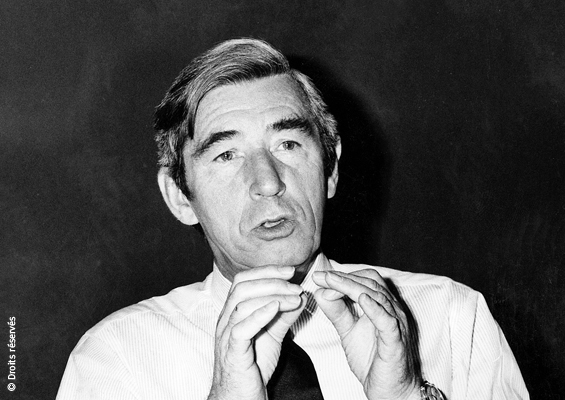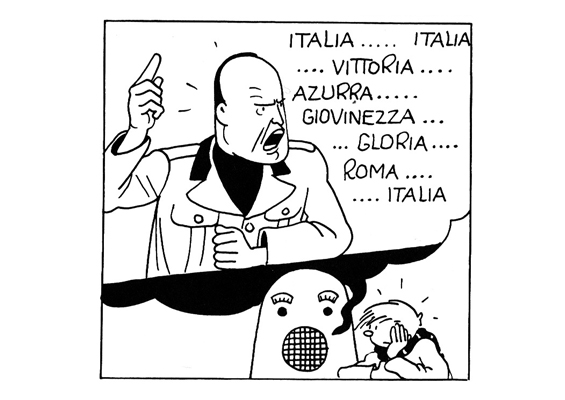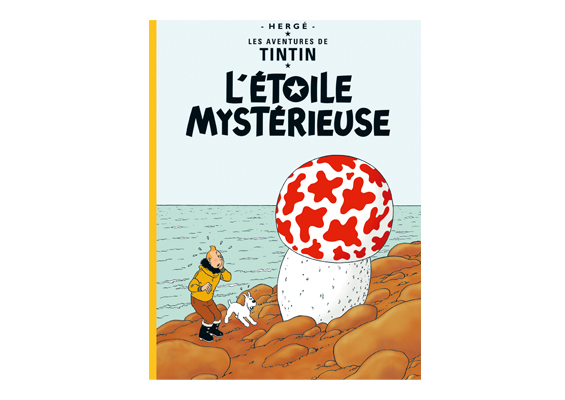Hergé: the facts

A nationalist Flemish politician has, in a Belgian newspaper, quoted Hergé out of context, to imply that the creator of Tintin was an anti-Semitic collaborator during the Second World War. This is an unacceptable and ill-disposed assertion. Read this summary of the salient facts.
November 1932 :
Hergé registers a complaint at the Brussels Court. The author's charge is against Léon Degrelle, the leader of the Rexist Party who openly admired the Nazis and became an infamous collaborator from the moment the Germans invaded Belgium in May 1940. Degrelle had used some of Hergé's drawings for political propaganda posters, without asking the artist's permission, knowing full well that he would not have received it. From November 1932, the relationship between Hergé and Degrelle, who met while they both worked on the editorial team of Le Vingtième Siècle, was over.
5 March 1933 :
Hitler sweeps to power in Berlin.
3 August 1933 :
Hergé publishes a Quick and Flupke cartoon entitled 'Music above all', mocking the rhetoric of Hitler and Mussolini being broadcast over the airwaves at the time.
4 August 1938 :
The story The Adventures of Tintin in Syldavia (soon to become a book entitled King Ottokar's Sceptre) begins in Le Petit Vingtième. Besides the allusions to the annexes enforced by Hitler (Austria in March 1938; Czechoslovakia in December of the same year), this new story puts forward a certain Müsstler as the enemy of the state of Syldavia, and the leader of the ultra-fascist Iron Guard. Hergé's satire is striking: Müsstler is a name made up of the two names Mussolini and Hitler. This sinister character is the ultimate 'baddie' !
1 September 1939 :
Germany invades Poland. Poland's allies, France and Great Britain, declare war on Germany. This is the beginning of what will become known as the 'Phoney War' : although the countries are officially at war, neither the German nor the Allied armies launch any attacks on each other, apart from a few minor skirmishes. Regarding Belgium's wartime stance, from March 1936 the country had adopted a policy of neutrality.
25 September 1939 :
The beginning of the publication of Land of Black Gold in Le Petit Vingtième.
December 1939 :
Despite official injunctions against journalists taking the side of one or other of the countries at war, Hergé ignores the restriction and expresses his opinion in the Belgian weekly journal, L'Ouest. For this express purpose the author creates a comic character, Mr Bellum, who is neither a warmonger (bellum, in Latin) nor a handsome chap ('bel homme' in French)! At the Hergé Museum, visitors can admire the original drawings for these cartoons, in which Mr Bellum insults the Germans by calling them the 'dirty boche', and by writing 'Hitler is a madman' on a wall.
10 May 1940 :
The Germans invade Belgium, violating the country's neutrality. Le Vingtième Siècle disappears along with its supplement, Le Petit Vingtième. Readers are left wondering how Land of Black Gold will finish, as the storyline is interrupted by the closure of the newspaper. The public will have to wait until 16 September 1948 to discover the new version of this adventure, in Tintin magazine.
17 October 1940 :
The daily newspaper Le Soir, under Nazi control, publishes the first issue of Le Soir-Jeunesse, in which The New Adventures of Tintin (The Crab with the Golden Claws) begins.
21 October 1941 :
Le Soir begins publishing daily strips of The Shooting Star. A joke in poor taste, portraying two greedy Jews, appears at the beginning of this story.
27 May 1942 :
The Germans set out rules, in Belgium, which require all Jews to wear the yellow star. This measure is part of a list of discriminatory laws including work restrictions and segregation in parks, on public transport and in schools.
December 1942 :
The appearance of the book The Shooting Star, the first adventure to be published in colour. Hergé has removed the scene with the Jewish joke.
February 1943 :
The underground resistance newspaper L'Insoumis publishes a leaflet entitled Galerie des Traîtres - Dans l'antre du Soir-Erzatz (Traitors' gallery - in the lair of the Fake Soir), which adds Hergé's name to a kind of hit list.
3 September 1944 :
Le Soir ceases publication.
4 September 1944 :
The liberation of Brussels.
7 September 1944 :
Hergé's house in Avenue Delleur, Brussels, is searched.
9 September 1944 :
Hergé is arrested by State Security. The author spends the night in Saint-Gilles prison in Brussels.
11 September 1944 :
The police interrogate Hergé. The file pertaining to his investigation is numbered 3065/44.
December 1945 :
The court dismisses the case against Georges Remi, otherwise known as Hergé.
4 October 1946 :
Hergé acquires his certificate of good citizenship, delivered by the police force of Watermael-Boitsfort in Brussels.

Conclusions
1. Was Hergé an anti-Semite, as certain people have been loudly declaring ?
If Hergé really had been an anti-Semite, then why was he so quick to delete the Jewish joke he wrote into the first strips of The Shooting Star ? It should also be remembered that these kinds of jokes were extremely common in Belgium at the time, regardless of the Nazis. It is enough to read the speeches given before the war by various politicians (not necessarily Nazi sympathisers) to realise that Belgian society was steeped in xenophobia and anti-Semitism. This fact has been proven by research carried out by historians at the Centre for Historical Research and Documentation on War and Contemporary Society.
2. Was Hergé a collaborator ?
If Hergé wanted to work for the Occupier, as has been suggested by certain ill-informed or ill-intentioned people, then he would have kept the questionable sequences in his comic strips, to bolster his status in the eyes of the dictatorial regime, which had made anti-Semitism one of its most important policies. Between 1941 and 1942, Hergé witnessed many of his 'Israelite' (as was said at the time) friends and acquaintances disappear. Summoned for 'routine identity checks', the unfortunate people never returned. Finally, it would be a good idea to have a clear understanding of the term 'collaborator'. The word means :
Someone who worked for or with the enemy : Hergé never did.
Someone who joined enemy forces : Hergé never did.
Someone who took up arms against their country : Hergé never did.
Someone who denounced his compatriots : Hergé never did.
Someone who helped the Occupier, by assisting in raids or publishing enemy propaganda, for example : Hergé never did.
Someone who participated in the demoralisation of the population, to the enemy's benefit : Hergé never did.
These are important facts to be aware of: will they be enough to silence the lies ?




 News
News Forums
Forums E-books
E-books











